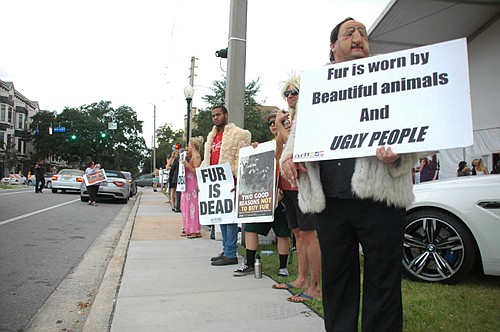- April 26, 2024
-
-
Loading

Loading

Winter Park City Commissioners attempted to right a legal wrong last Monday as they voted on first reading to strike language from the city’s loitering ordinance deemed unconstitutional by the U.S. Court of Appeals in March.
The wording in the ordinance allowed any resident with a “no loitering” sign to call the police on anyone standing within 50 feet of their property – even if they’re standing in a park or public right of way.
Generalized language in the provision created a potential 50-foot no-protest zone, leaving the door open for residents to phone the authorities on protesters based solely on personal views.
“In other words, private citizens can decide that they dislike the content or viewpoint of a speaker’s message and then contact the Winter Park police to enforce [the ordinance],” the verdict reads on the U.S. Court of Appeals for the 11th Circuit website.
“This strikes us as unprecedented.”
But residents have technically had that right for 54 years under an existing ordinance, Winter Park Director of Communications Clarissa Howard said. The U.S. Court of Appeals specifically took issue with nearly identical language introduced in October 2012, which outlined the 50-foot buffer and that “an officer of the city may enforce this section.”
The U.S. Court of Appeals stumbled upon the language while reviewing an appeal of Winter Park’s picketing ordinance – a law that banned protesters from standing within 50 feet of a targeted residential home.
Only the most recent loitering language from 2012 was ordered to be struck down, leaving the 54-year-old ordinance with virtually the same language – minus the 50-foot barrier – in place.
“That language was already there in the loitering code that immediately preceded the ordinance at issue,” City Attorney Larry Brown said. “When I was going through the drafting process, I wanted to harmonize and bring all the parts together. That caused the 11th Circuit to take a look at the loitering provision and they found that was unconstitutional.”
“I’d like to stay with whatever the court says,” City Commissioner Carolyn Cooper said.
The City Commission was unsure why the ordinance hadn’t been challenged earlier, but Police Chief Brett Railey reasoned that’s because it’s never been enforced.
“Probably the reason there hasn’t been a challenge is in my 33 years I don’t recall a loitering arrest being made under this ordinance,” Railey said. “When officers make arrests for loitering or prowling, it’s made under a state statute, which has completely different guidelines.”
The city’s loitering ordinance may not be the only language in need of change and clarification, Brown said.
“Sometimes I have found that certain revisions in your code of ordinances are in legal need of revision,” City Attorney Larry Brown said. “Generally, I try very hard to accept and harmonize your existing code of ordinances.”
“…I’m simply doing exactly what the 11th Circuit told us to do.”
The amendent to the city’s loitering ordinance will go before the City Commission for final approval at the Sept. 8 meeting.